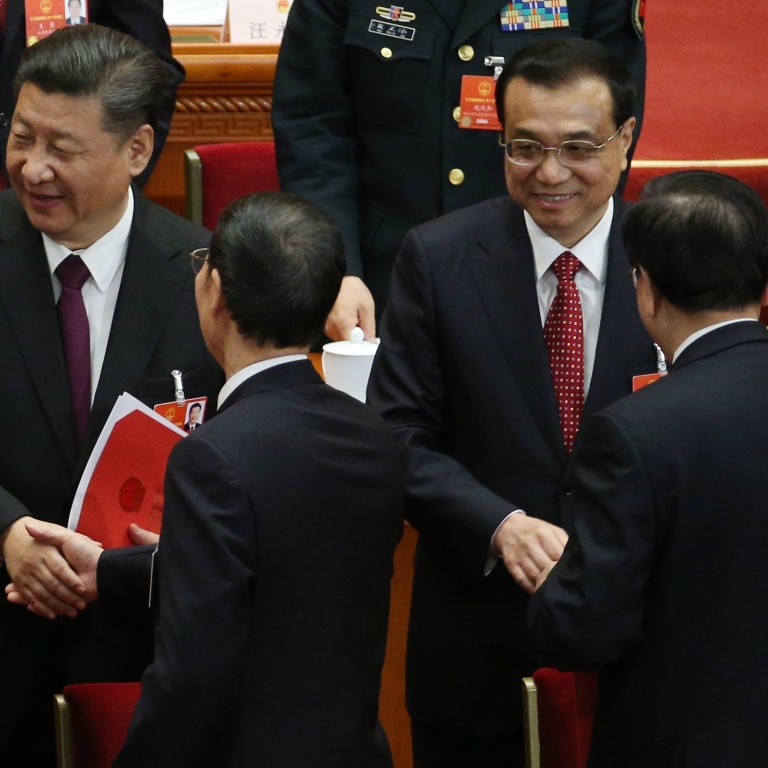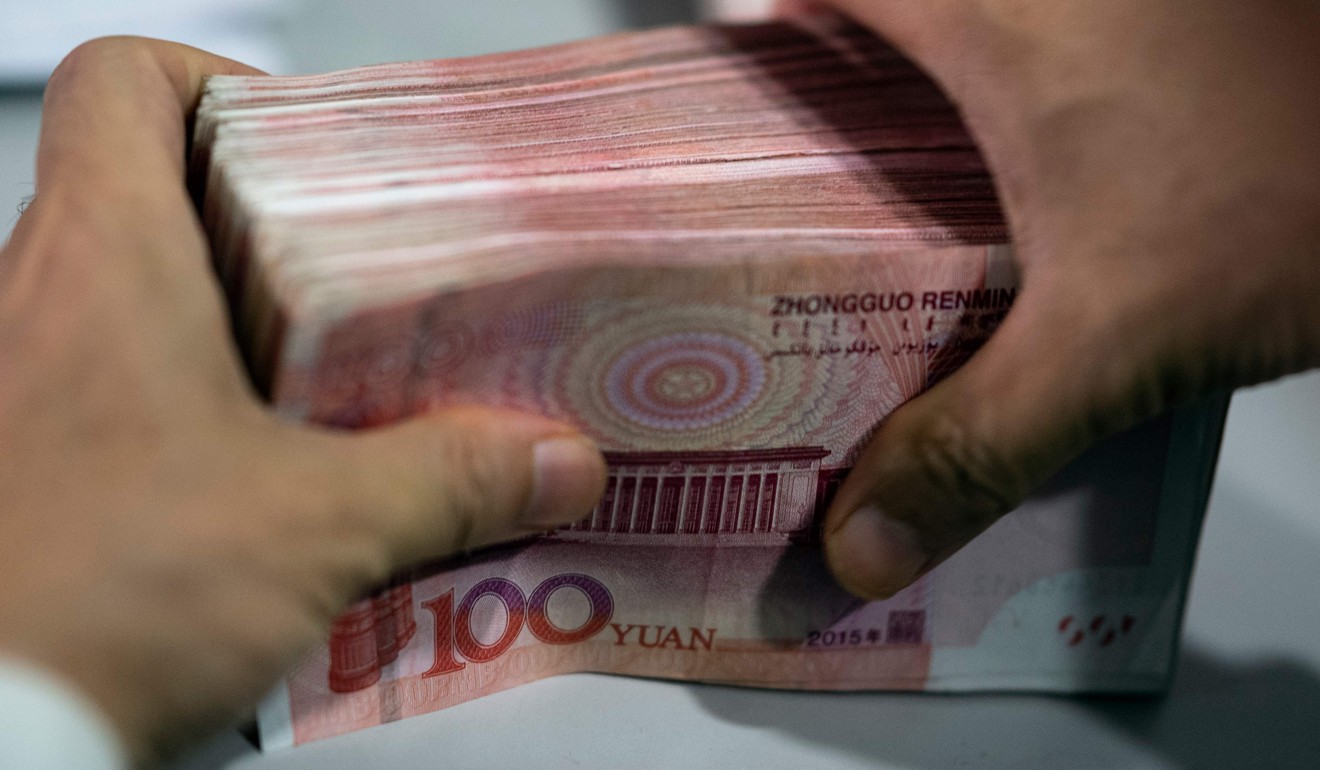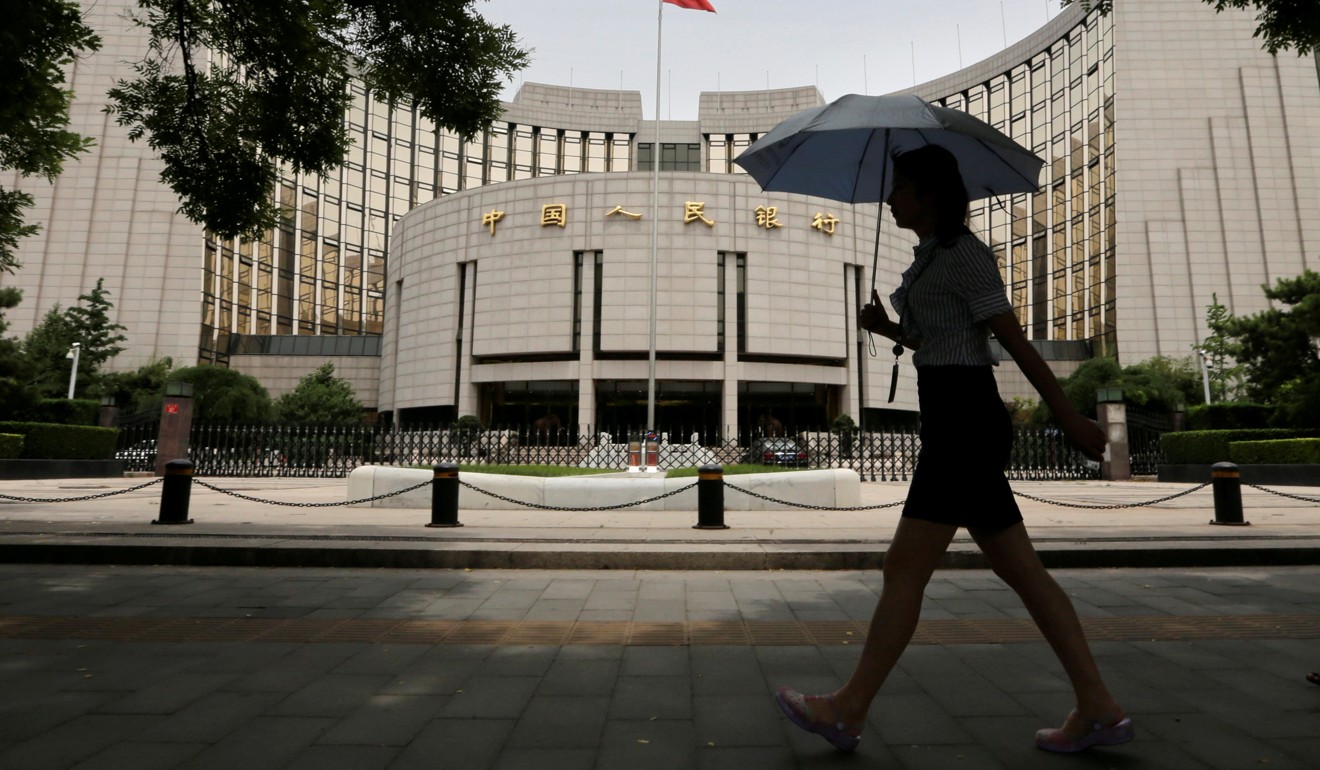
China’s Premier Li Keqiang warns central bank of ‘new potential risks’ posed by record loans in January
- New yuan loans last month reached US$476.97 billion, almost triple the amount from December, after Beijing eased regulations in a bid to its boost slowing economy
- People’s Bank of China hits back, saying growth in short-term lending ‘mainly supported the real economy’ amid the US-China trade war
Premier Li Keqiang has warned of the “new potential risks” that China’s record level of new loans in January could bring to the financial system.
The People’s Bank of China (PBOC), China’s central bank, confirmed that new yuan loans surged to 3.23 trillion yuan (US$476.97 billion) last month, almost triple the 1.08 trillion yuan (US$160.8 billion) of loans in December and beating the 3.06 trillion yuan from the same period last year.
Total social financing, the more broadly defined measure of credit in the economy that includes loans, bonds and other non-traditional financing instruments, grew to 4.64 trillion yuan (US$685.18 billion) in January.
“Apparently, total social financing grew rapidly after the signal sent by the reserve ratio cut. But a careful reading of the data tells us bill financing and short-term loans are rising relatively fast,” said Li during Wednesday’s State Council meeting.
“This will not only lead to arbitrage and inefficient circulation of capital, it will also bring new potential risks.”
Arbitrage is used to profit from the deviation between the interest rate differential, with some firms acquiring bill financing funds from banks at interest rates of 3-3.5 per cent and then investing that same money in structured deposits at 3.5-4 per cent to generate a profit.
Li’s rare comments on January’s lending data highlight a concern over the impact of China’s recent monetary easing measures, with State Council meetings usually reserved for discussions concerning broad government policies, while the central bank has traditionally explained official financial data.
It also raises questions about the effectiveness of the central bank’s effort to help support economic growth amid the trade war with the United States.
Li’s unusual comments suggest concern among some policymakers that the recent modest easing in monetary policy by the PBOC has allowed a resurgence in financial activity akin to speculation that does not benefit the real economy and creates unacceptable financial risks in the longer term.

In the recent months, some banks encouraged arbitrage to achieve regulatory targets for lending to private companies and overall deposit size.
The PBOC cut the amount of cash banks must hold in reserve at the central bank by 100 basis points last month, stepping up its efforts to bolster bank lending.
In 2018, it cut the reserve ratio four times, releasing more than 2 trillion yuan (US$297 billion) worth of liquidity into the banking system.
However, analysts have noted that the sharp rise was largely supported by short-term lending, which is unsustainable and suggests an unwillingness by banks to risk longer-term lending, particularly to private sector firms, that would help support the real economy.
New discounted bills, a type of short-term lending, increased by 516 billion yuan (US$77 billion) in January, 15 times the 35 billion yuan (US$5.2 billion) in new issues in same period last year.
Corporate short-term loans of less than 12-months maturity rose 592 billion yuan, well above the 375 billion yuan increase a year earlier.

A few hours after Li’s speech, the PBOC’s research department issued a statement through its Financial News stressing that the growth in bill financing in January “mainly supported the real economy.”
Moreover, while there continues to be “individual cases” of arbitrage, the room for such activity has largely been squeezed out.
But despite reassurance from the PBOC, analysts still see major opportunities for arbitrage under current policies.
“In practise, there is significant room for arbitrage by companies using bill discounting, and it can hardly be contained when Beijing is trying to support lending to small- and medium-sized enterprises,” said Chen Shujin, chief financial analyst with Huatai Financial Holdings in Hong Kong.
Larry Hu, chief China economist for Macquarie Capital, said Li’s comments are meant to anchor market expectations and are a call to fix potential policy loopholes.
“[Monetary] policy is generally being loosened, but the economy has not yet worsened to the extent of needing a large-scale stimulus. But market sentiment has turned into irrational optimism from the irrational pessimism seen two months ago,” he said.
“It is hard for the central bank to identify all the arbitrage activities in the market.”


